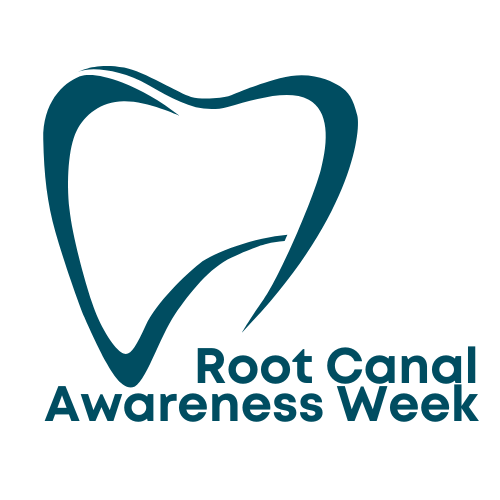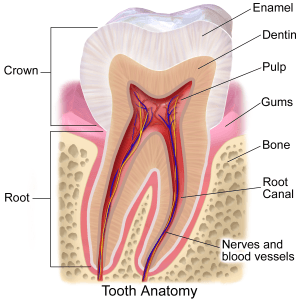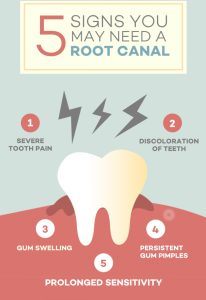
Root canals are a common dental procedure with a real bad and unwarranted rap. So often we hear, “Don’t root canals hurt?” It’s a frequent misconception that root canal treatment is painful. In fact, the pain associated with root canals often comes from the infection itself, not the treatment. Most patients feel immediate relief from the removal of the infection.
Dentists or Endodontists use local anesthesia to numb the patient while the procedure is performed, so although you may feel some pressure, you shouldn’t be in much discomfort. May 7th jump starts “Root Canal Awareness Week.” We thought we’d take some time to address these misconceptions and educate our patients.
When Is A Root Canal Recommended?
There are canals in the pulp portion of the roots of your teeth that contain blood vessels and nerves, both of which are essential to tooth vitality. There are a few occurrences that may compromise the integrity of these canals and may lead to a root canal being recommended by your dentist. If decay is left untreated and encroaches too close to the pulp, this may lead to an infection and root canal treatment would be recommended. A tooth fracture or crack may cause nerve damage or may allow bacteria to enter the tooth roots leading to an infection. This is also another instance where a root canal may be recommended.
Are There Any Symptoms To Be Aware Of?
There are several signs to be aware of that may indicate a root canal might be needed. Consult your dentist if you are experiencing any of the following:
- Persistent tooth pain
- Pain while eating or on-going sensitivity or heat/cold
- Swollen gums or cheek
- A pimple-like protrusion on the gum
- A chipped or cracked tooth
- Discoloration of tooth
- At times, no symptoms are present but dental x-rays identify infection
What’s involved with Getting a Root Canal?
The dentist or endodontist will first numb the area with some local anesthetic. An access hole will be made so the dentist can remove the pulp of the tooth, including the nerves and blood vessels. Once the pulp is removed, the doctor will clean and disinfect the canals. They will be shaped and filled with gutta-percha, a plastic-like substance derived from trees. A filling or dental crown will then be placed to properly seal the tooth.

What Happens If I Don’t Get A Root Canal?
We understand the anxiety related to dental treatment and also the financial burden associated with unexpected medical costs. However, if a root canal is recommended from your dental provider, it should not be put off too long. It’s crucial to remove the infection. If left untreated, the infection can continue to spread. This can lead to tooth loss or worse, life-threatening conditions including strokes, heart attacks or even sepsis.
We certainly hope this helped answer some of the many questions and concerns we hear regularly regarding root canals. If you have been experiencing any of the symptoms mentioned above, please consider scheduling an appointment to have the area evaluated.

